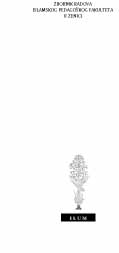AUSTROUGARSKA OKUPACIJA BOSNE I HERCEGOVINE I NOVE DRUŠTVENO-POLITIČKE, KULTURNE I VJERSKO-PROSVJETNE PRILIKE
AUSTRO-HUNGARIAN OCUPATION OF BOSNIA AND HERZEGOVINA AND NEW SOCIALLY POLITICAL, CULTURAL AND RELIGIOEDUCATIONAL STATE OF AFFAIRS
Author(s): Bilal HasanovićSubject(s): Education
Published by: Islamski pedagoški fakultet Univerziteta u Zenici
Summary/Abstract: After the occupation of Bosnia and Herzegovina by Austro-Hungarian Monarchy (1878), Muslims in B&H undergo great social, political and cultural changes. Numerous cultural, political and economic relations between Bosniacs and far away centers of Islamic, political and cultural life of the Islamic world were almost broken. Bosnian Muslims were forced to choose between the tradition of western civilization and disappearance. The road of their adaptation was very difficult and painstaking, and for many Bosnians that was the reason for moving from Bosnia, mostly to Turkey. Not any important political, cultural or religious movements marked the first two decades after the occupation. First movements important for Bosnian cultural and political scene started at the end of IX and the beginning of XX century. This period was characterized by Bosnian demands for religioeducational and vakuf- me’arif authonomy, and by many other culturally-educational, economic and humanitarian projects that stirred the consciousness of Bosnian Muslims about the necessity of cultural and national emancipation. On an educational level Austro-Hungarian administration in Bosnia and Herzegovina attempts to introduce common (for all the three confessions) primary education, but it encounters the resistance of both the Catholic Church and the conservative Bosnian Muslims. They were vigorously against all innovations that come from the West, and the resistance to educating Muslim females was especially strong. The basic Muslim education – mektebs, three decades after the occupation, gives some positive results although only 2% of Muslim children attended state-run schools. This was the subject of vehement critique of the state educational politics by some Bosnian members at the Bosnian Parliament.
Journal: Zbornik radova Islamskog pedagoškog fakulteta u Zenici
- Issue Year: 2007
- Issue No: 05
- Page Range: 127-142
- Page Count: 16
- Language: Bosnian

